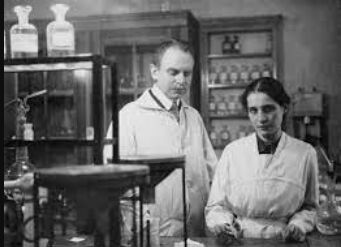Physicist Lise Meitner: Overlooked, Underrated, and Unjustly Excluded from Nobel Prize Recognition
Physicist Lise Meitner's groundbreaking contributions to nuclear physics have long been overshadowed due to her gender and Jewish heritage, highlighting the historical injustices faced by women in science. Efforts are now being made to reexamine her role and give her the recognition she deserves. Meitner's story serves as a reminder of the need for greater representation and equality in the field of science.
Physicist Lise Meitner's contributions to the theory of nuclear fission have long been overshadowed, largely due to her gender and Jewish heritage. Despite facing numerous barriers, Meitner made significant discoveries and collaborated closely with chemist Otto Hahn. However, when Hahn received the Nobel Prize for their work, Meitner was referred to with a German term that means assistant or employee, highlighting the historical injustices faced by women in science. Meitner's story is an important reminder of the need for greater representation and equality in the field of science.
Although she never received a Nobel Prize, there is now growing recognition of her groundbreaking contributions to nuclear physics. Her work paved the way for the development of the atomic bomb and has had a lasting impact on the field. In recent years, efforts have been made to reexamine Meitner's role and give her the recognition she deserves. Marissa Moss, the author of a book about Meitner, has translated hundreds of letters between Meitner and Hahn, shedding light on their complex relationship. These letters challenge the common perception that Meitner accepted the Nobel Prize snub without resentment.
Moss believes that Meitner's gender and Jewish heritage played a significant role in her exclusion from the Nobel Prize. She wrote in a letter to her nephew, Otto Robert Frisch, that she believed Hahn's attitude towards her contributed to the Nobel committee's decision. However, Meitner wanted to keep this private, emphasizing the complexities of her situation. One cannot overlook the fact that Meitner's story is part of a larger pattern of women in science being overlooked and their achievements going unrecognized.
Another notable example is chemist Rosalind Franklin, whose contributions to the discovery of the double helix structure of DNA were not acknowledged until years later. Katie Hafner, the host of the podcast "Lost Women of Science," reminds us that Meitner is not a forgotten figure, but rather a misunderstood one. Her achievements and her struggles highlight the immense talent and determination of women in the field of science. Meitner's journey was filled with obstacles, but she persevered and made significant contributions to our understanding of nuclear physics. Her story serves as a powerful reminder of the importance of representation, recognition, and equality in science. As we celebrate our scientific achievements, it is crucial that we also confront the injustices and oversights that have occurred throughout history.




